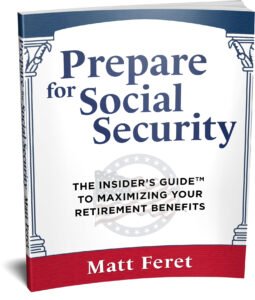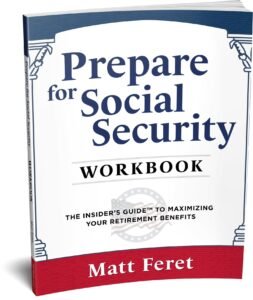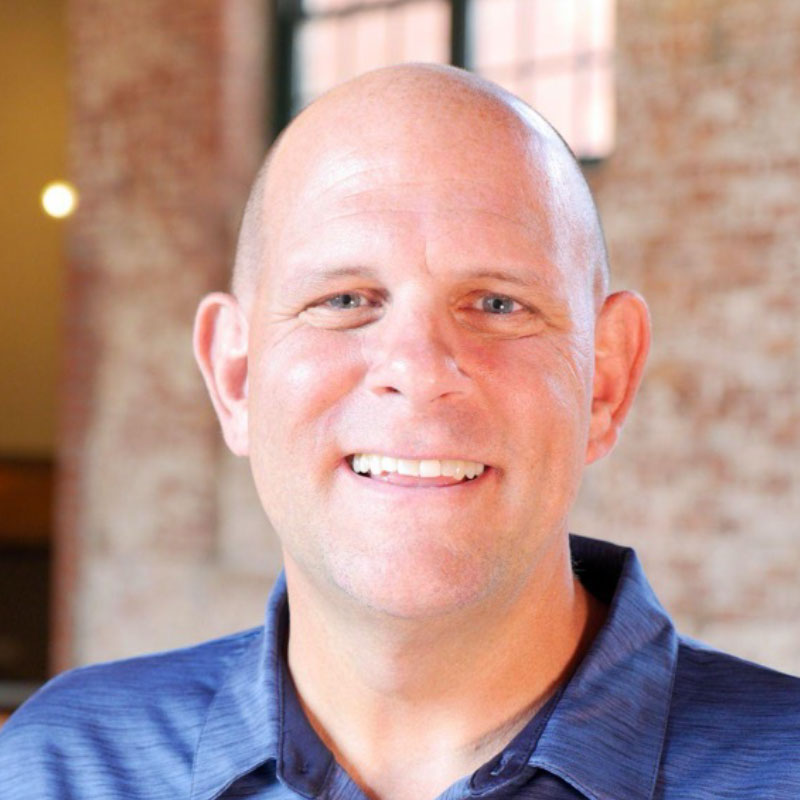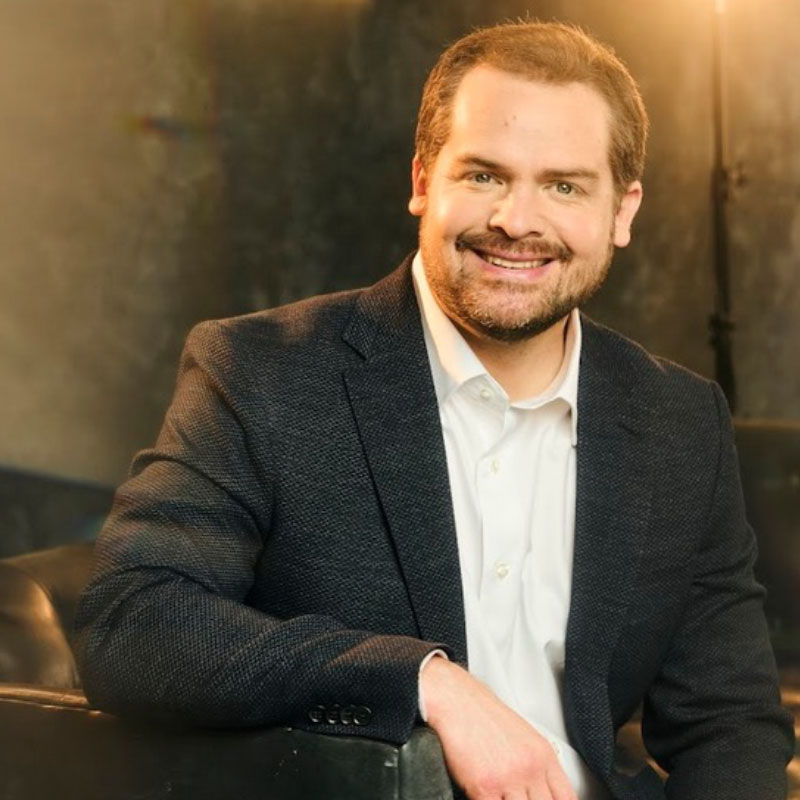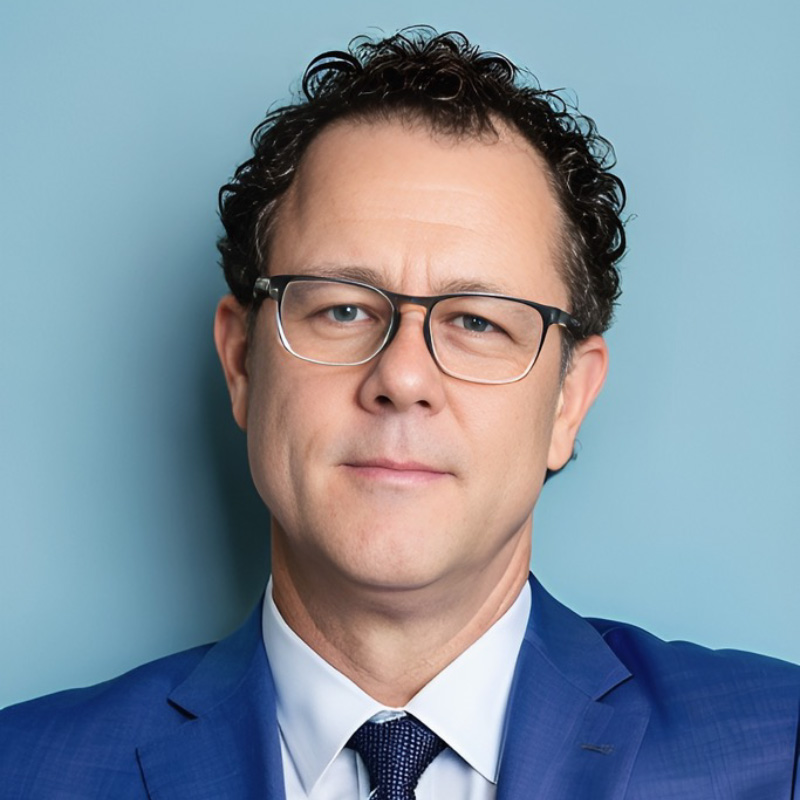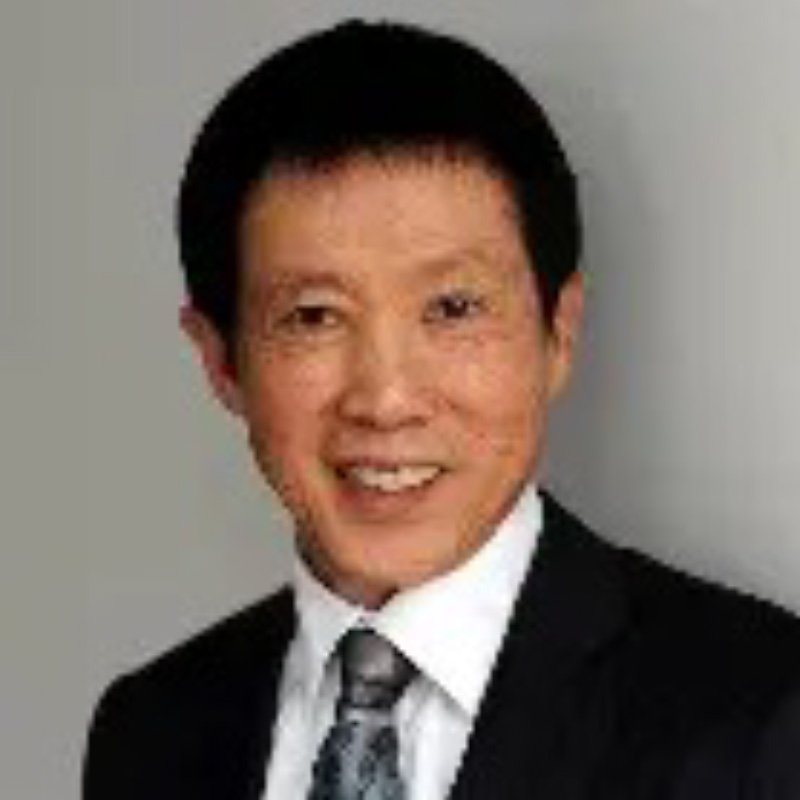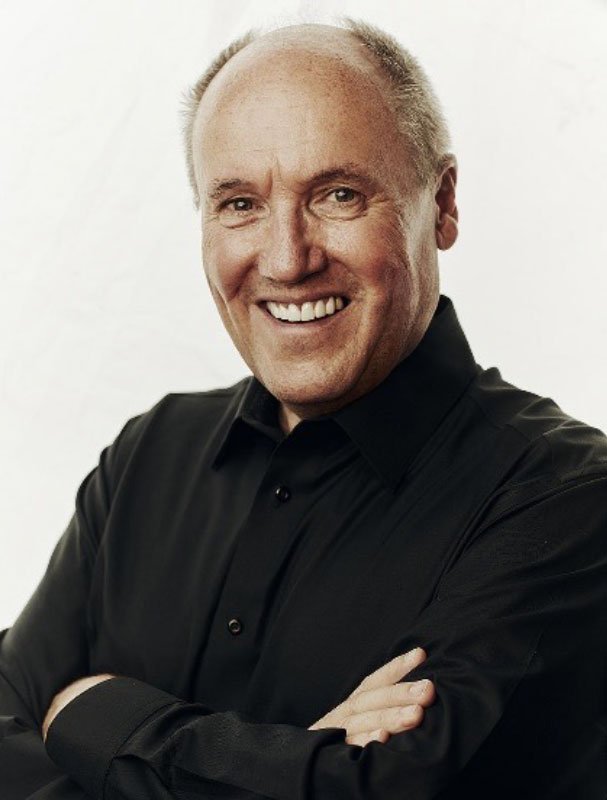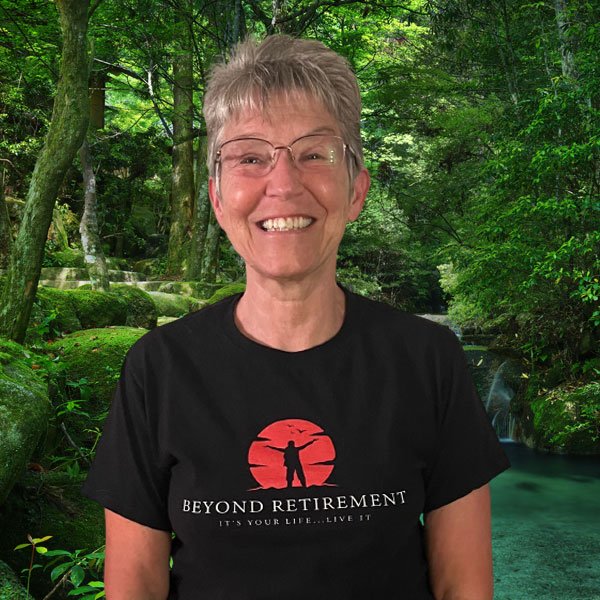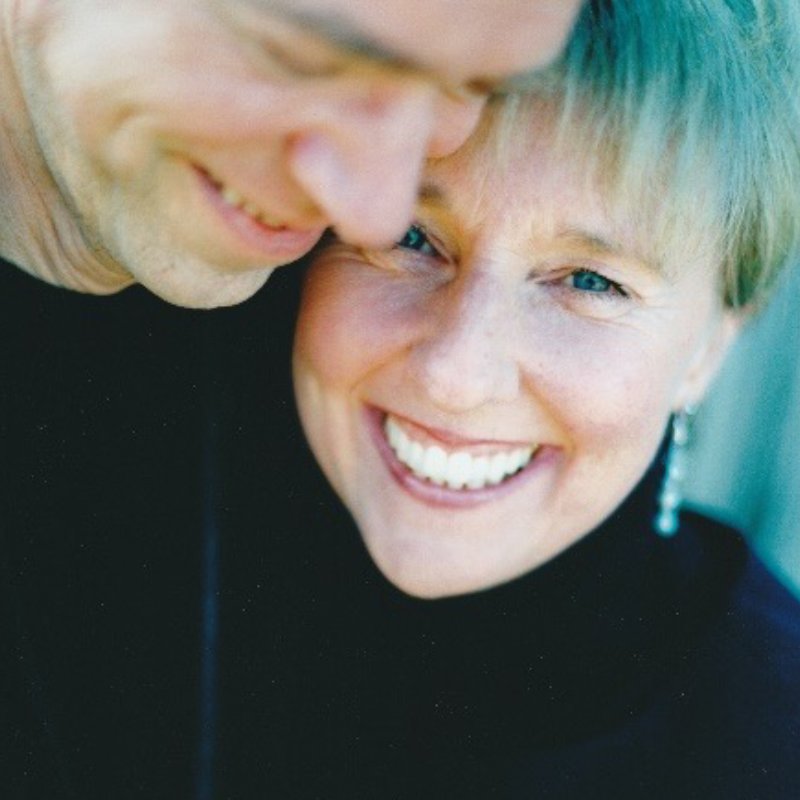#006
Share This:
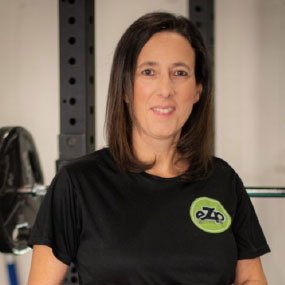
“If you're getting into the stages of your life where are closer to retirement, it's never too late to start. And if you have a hard time starting, pair up with a workout buddy. The older we get, it is harder to sometimes find that motivation. And some days it's easier than others. So finding somebody that you would enjoy working out with, taking long walks. And it doesn't have to be... And this is another thing that I want to bring up. Sometimes people feel like they have to work out for two, three hours. You don't. I tell my clients, my clients who wait train with me, they want to do cardio in between. I say, "Look, if you give me 30 minutes of a good quality cardio workout, you do not need to be on that machine, whatever it is that you're going to do, for hours on end."
-Erika Pimentel
Erika Pimentel holds a Ph.D. in Human Nutrition and is a NASM-certified personal trainer who specializes in women's fitness.
This episode will give you an insider’s view into maintaining fitness as you age, the importance of weight and core training for balance, nutrition and meal plans, online training programs versus in-person assessments, customization versus just getting started, fad diets, food and exercise, and a whole lot more!
Listen to the episode on Apple Podcasts, Spotify, Deezer, Podcast Addict, Stitcher, Google Podcasts, Amazon Music, Alexa Flash Briefing, iHeart, Acast or on your favorite podcast platform. You can watch the interview on YouTube here.
Brought to you by Prepare for Medicare – The Insider’s Guide book series. Sign up for the Prepare for Medicare Newsletter, an exclusive subscription-only newsletter that delivers the inside scoop to help you stay up-to-date with your Medicare insurance coverage, highlight Medicare news you can use, and reminders for important dates throughout the year. When you sign up, you’ll immediately gain access to seven FREE Medicare checklists.
Quotes:
“A lot of women start to transition and see changes that they don't understand why they're happening. I think we're not educated enough. The medical profession doesn't really prepare us or friends and family. It's not talked about enough, some of the changes that you can start to experience, and it's very frustrating. Women will get depressed. They're starting to gain weight. They've tried everything. They don't know what's going on.”
-Erika Pimentel
“Once you hit 40, between 40 and 50, you have a bigger decrease in lean muscle mass. It's just muscle atrophy. It's a normal process in the human body. It continues throughout your fifties, sixties, and seventies. But the biggest chunk is between mid-thirties to fifties. So one of the things that I think is critical is people understanding that if you are active, you are better able to maintain your lean muscle mass. There are studies that show that once you start experiencing some of that weight gain, late thirties, early forties, if you do not decrease your (daily) caloric intake by about 200, 300 calories, you will see that weight gain unless you're active, unless you're doing something proactively. So it is a part of human nature, I guess, for you to start seeing some of those changes. It's what you do about them, what's going to be the end result. Will you gain weight? Will you able to maintain your weight?”
-Erika Pimentel
“It has become very confusing. That's part of the problem. People get bombarded with too many different options. I don't know if I'm one of the few out there that still believes this, but for me, I do not believe in fad diets because of the fact that our human body is designed to use protein, fat and carbohydrate. We need all three. Now what are the best ratios for each person? I really do believe that depends on the stage of your life that you're in. So you do have to adjust a little bit, as you age, those proportions.”
-Erika Pimentel
“Well, and it's great that you bring that 1.2 (grams of protein per pound of body weight) up because you will see tables. If you were to Google it, you're going to see tables that show 1.2 grams per pound. But we were taught in the way that I even learned it when I was in school studying for nutrition is you don't use per pound, you should use per kilogram of body weight, which makes a huge difference. So if you're somebody who's just trying to maintain your weight, you're not active. You would do 0.8 grams of protein per kilogram of body weight. If you're somewhat active, you can bump it up to one gram of protein per kilogram of body weight. If you're somebody who's really weight training, even if it's not heavy, but you're doing it three, four times a week, you can bump that up to 1.2 grams of protein per kilogram of body weight.”
-Erika Pimentel
#006
Selected Link from the Episode:
Full Show Transcript:
#006: Erika Pimentel on Maintaining Fitness as You Age, the Importance of Weight and Core Training for Balance, Nutrition and Meal Plans, Online Training Programs versus In-Person Assessments, Fad Diets, Food and Exercise with Matt Feret
00:00 / 36:45
LEGAL CONDITIONS:
Matt Feret/MF Media, LLC owns the copyright all content and transcripts of The Matt Feret Show, and mattferet.com with all rights reserved, as well as right of publicity. All rights reserved.
No part of this publication may be reproduced or transmitted in any form or by any means, electronic or mechanical, including photocopying, recording, or by any information storage and retrieval system without written permission of the publisher, except for the inclusion of brief quotations in a review. You are welcome to share the below transcript (up to 500 words) in media articles, on your personal website, in a non-commercial article or blog post, and/or on a personal social media account for non-commercial purposes, if you include attribution to “The Matt Feret Show” and link back to the mattferet.com website.
WHAT IS NOT ALLOWED: No one may copy any portion of the content or use Matt Feret’s name, image or likeness for any commercial purpose or use, including without limitation inclusion in any books, e-books, book summaries or synopses, or on a commercial website or social media site (e.g., Facebook, Twitter, Instagram, etc.) that offers or promotes your or another’s products or services.
DISCLAIMER: This publication is in no way sponsored, associated, authorized, approved, endorsed nor, in any way affiliated with any government agency, company, trademarked names, or other marks. Any such mention is for purpose of reference only. Any advice, generalized statistics, or opinions expressed are strictly those of the host and the guest. This publication, The Matt Feret Show nor the mattferet.com website is meant to replace the sage advice of healthcare, insurance, financial planning, accounting, or legal professionals. You are responsible for your financial decisions. It is your sole responsibility to independently evaluate the accuracy, correctness or completeness of the content, services, and products of, and associated with this publication. The thoughts and opinions expressed in this publication are those of the host and guest(s) only and are not the thoughts and opinions of any current or former employer of the host and guest(s) nor is this publication made by, on behalf of, or endorsed or approved by any current or former employer of the host and guest(s).
Matt Feret (00:14):
Hello everyone. This is Matt Feret. And welcome to another episode of The Matt Feret Show, where I interview insiders and experts to help light a path to a successful retirement. First, a quick thank you is an order. The Matt Feret Show is really taking off, thanks to all of you. It's a lot of fun for me and I hope valuable for you. I just wanted to, again, thank you for listening, liking, thumbs upping, rating, ranking, subscribing and following The Matt Feret Show on YouTube and all over the podcast universe.
Matt Feret (00:44):
That said, if you haven't yet subscribed to the YouTube channel, I'd be grateful if you did. And if you're listening to this podcast, put a voice with a face. Video and full show transcripts are up at mattferet.com or just search for The Matt Feret Show on YouTube.
Matt Feret (00:59):
We all know staying physically active throughout our lives is a key component to overall health, but working out may be even more important the older you get, especially for women. Falls are the leading cause of injury-related death among adults age 65 and over and fall death rates among adults age 65 and older increased about 30% from 2009 to 2018. Weight training and overall fitness go a long way, keeping muscles strong and your balance on point as we age, but that's only half of it. And it may actually be less than half of it. Staying active and having the right nutrition plan goes hand in hand with physical fitness and the mental fitness that supports it.
Matt Feret (01:40):
My guest today is Erika Pimentel. She holds a PhD in human nutrition and is a NASM certified personal trainer who specializes in women's fitness. We talked quite a bit about maintaining fitness as you age, the importance of weight and core training for balance, nutrition and meal plans, online training programs versus in-person assessments, customization versus just getting started, fad diets, food and exercise, and a whole lot more. Enjoy. Erika, welcome to the show.
Erika Pimentel (02:10):
Hi Matt. Thanks for having me.
Matt Feret (02:12):
Sure. Tell everybody a little bit about what you do and how you help people.
Erika Pimentel (02:19):
Yes. So I am a personal trainer. I was certified through NASM. I help women. So I specialize in women's fitness. Prior to that, I was actually teaching at Rush University Medical Center. I was in charge of the graduate students, teaching nutrition. So I have always had a passion for health and wellness and fitness. Decided to open my own personal training business so that I could be closer to my kids. I'm no longer teaching, but I keep up with nutrition.
Matt Feret (02:51):
Thank you. What is NASM? You said NASM as if I knew what that was, but I have no idea. What is it?
Erika Pimentel (02:57):
NASM is the National Academy of Sports Medicine. There're different ways that you can get accredited as a personal trainer. NASM is one of the highly recognized. If you were to want to go to work at a specific gym, they're looking for the more highly accredited personal training specialization. I've been with NASM for eight years, and every two years you have to re-certify to keep up with your education in fitness and in health, because they offer health as well.
Matt Feret (03:28):
Talk to me a little bit more about that. What is it like? What does it take to get certified as a personal trainer through NASM? And talk about that. Sounds like continuing education every couple years. Can you tell me a little bit about that?
Erika Pimentel (03:40):
It does. So the first time around, you're just studying the general information. You have to pass this exam. Once you pass that, you can go into different specializations. You can do in-person workshops. Others are just online education. I have done the nutrition coach, weight loss specialization and women's fitness. So those are kind of my passions. They go hand in hand. They have things for youth, if you want to specialize in youth group training and other things as well. You have to study, pass an exam and attend some workshops as well.
Matt Feret (04:21):
So you've got a very interesting background: personal trainer, women's health, nutrition education, and now you're putting it into practice with personal training. Tell me about that journey.
Erika Pimentel (04:32):
It's been a great journey actually. I started teaching graduate students nutrition. It was a long commute for me. So when I had kids, I decided to back away from that. And when my youngest one was getting ready to start kindergarten, I decided, "Okay, what am I going to do? I don't want to go back to the commute." Have always been very active, used to play sports, have always loved weight training. So I decided to just step in and try it out. Because of my nutrition background, it makes it a lot easier for me to really help my clients in more of a holistic way, to approach their lifestyle, not just working out, but you really have to focus on your nutrition as well.
Erika Pimentel (05:12):
So it's been a good eight years for me and I've really enjoyed, especially women because that's my passion. I know from personal experience a lot of the struggles that sometimes women can go through as we age. So that has really been my major focus, helping women. I do train males, but the majority of my clients are females, older females.
Matt Feret (05:36):
Well, let's get into that. So you're blending, not just shoving up weights at a gym and not just using a fitness app to track your calories. It's really the blended piece. Talk about your passion. Talk about that passion for women's fitness and women's health.
Erika Pimentel (05:52):
Yeah. So a lot of women start to transition and see changes that they don't understand why they're happening. I think we're not educated enough. The medical profession doesn't really prepare us or friends and family. It's not talked about enough, some of the changes that you can start to experience, and it's very frustrating. Women will get depressed. They're starting to gain weight. They've tried everything. They don't know what's going on.
Erika Pimentel (06:18):
And every person is an individual. You cannot do the same program for one person as you do for the next, because there're different things that might be happening. So I really take time to talk to my clients, delve into any medical issues that they might have. What have they tried? I do have them use an app to track because that's really the best way for me to really know what they're eating. It's funny sometimes they say, "I think I'm eating okay," and you start asking questions and it's really not okay.
Erika Pimentel (06:47):
So to really get a good picture, I have to get people to track. And then I go in and I look at that intake and give them feedback. We sit down and say, "These are the changes that you can make. This is why you would make them. This is how it's going to help you." One of the biggest things is protein intake. I would say that and women tend to decrease caloric intake when they see that they're putting on weight and things are happening. They think that by restricting calories, they're going to get the results that they want. So really talking to them about a healthy way of achieving that healthy lifestyle is what I focus on.
Matt Feret (07:24):
Talk to me about those chemical changes. And you're right. I mean, there's so much diet data out there and Mediterranean diet and calorie restriction, blood type. Talk to me a little bit about that journey. And maybe from the onset of menopause or forties and fifties and all the way to kind of the end and what are the changes that you see and how does working with a nutritionist or someone who combines nutrition and personal training, how can that help alleviate symptoms or help people get through different stages?
Erika Pimentel (07:59):
That's a great question, Matt. And I'll back it up to the thirties because this is a critical piece, I think people don't realize. We're in our thirties, vibrant, have a lot of energy. You start to experience, or at least most women will start to see some changes mid-thirties to late thirties. A big piece is, in your thirties, whether you're male or female, we will start to lose lean muscle mass. People don't think that it occurs that early, but it does. So what that does is the less lean muscle mass that you have, the slower your metabolism will be because you're going to be burning less calories. So maintaining lean muscle mass is critical.
Erika Pimentel (08:38):
Once you hit 40, between 40 and 50, you have a bigger decrease in lean muscle mass. It's just muscle atrophy. It's a normal process in the human body. It continues throughout your fifties, sixties, and seventies. But the biggest chunk is between mid-thirties to fifties. So one of the things that I think is critical is people understanding that if you are active, you are better able to maintain your lean muscle mass. There're studies that show that once you start experiencing some of that weight gain, late thirties, early forties, if you do not decrease your caloric intake by about 200, 300 calories, you will see that weight gain unless you're active, unless you're doing something proactively. So it is a part of human nature, I guess, for you to start seeing some of those changes. It's what you do about them, what's going to be the end result. Will you gain weight? Will you able to maintain your weight?
Erika Pimentel (09:36):
So talking to people about this, it's not common knowledge. I think a lot of people don't know. So doing definitely weight training. And I know a lot of the times, males have always been very active in weight training. Females, unfortunately have been given this notion and now it's changing, which is a good thing. But, for the last decade or more than that, females were always told, "Cardio, cardio, cardio. Women do not lift weights." Until this day, you still get some comments, "Oh yeah, women can't lift heavy." It's like, "What do you call heavy, right?" It doesn't have to be extremely heavy, but just staying active with some form of resistance training is really helpful to maintain your lean muscle mass.
Erika Pimentel (10:23):
And that is a key component in being able to stay healthy. It'll help you as you age with balance, working out, balance and stability. As we age, you start to lose your balance, fall, you might hurt yourself in a really bad way. Those are some things that if you train actively, you can prevent as you age. I had this one person at the gym that I used to work for. Unbelievable, the type of exercises that he did and what he was able to do. And it all really revolved mostly around core stability. We're talking somebody in his seventies. I never asked him his age. He might have been older, but it always amazed me what he was able to do. And he was so dedicated and consistent, because he knew the importance of core stability. So that's also a huge component strengthening your core to prevent lower back issues, back pains, falls and things like that.
Matt Feret (11:22):
So if I'm listening and we're watching this and I'm a male or a female in my fifties, sixties, seventies, you mentioned core stability, you mentioned weight training, but maybe I don't have a membership up to a gym. Maybe I can't afford or don't think I can afford a nutritionist to really map out my meal plans. And frankly, I don't really want to be an Instagram model and I don't need to be. I just need to be functionally healthy. What are some things that I can do at home or do myself without having to go feel like I've got to spend a lot of money. Are there books? Are there online resources or are there some basic tenets that people need to follow as older adults and as they age?
Erika Pimentel (12:09):
That's a very good question. You do not need to belong to a gym to be able to work out and get a good workout. So I'm going to tackle the fitness part first. There are online programs. I don't really recommend those as much because you really want, at least to start off with, have somebody to guide you, to make sure you're doing the exercises correctly. And yes, you can look at some of these programs and get the idea behind it, but it's always a good thing to start off with somebody guiding you. And it doesn't have to be permanent. If you've never done weight training, it would be beneficial for you to have somebody looking at your form and helping you.
Erika Pimentel (12:50):
I always tell my clients, "You don't need me anymore." I have clients that have been with me four or five years, and it's more because of the accountability. They know what they're doing, but you really don't need to stay with a personal trainer for that long. A couple of dumbbell sets that you have, eight, tens, twelves, if you're beginning. Lean muscle mass, you can start to build it if you're using twelves and above. But if you're somebody who's not interested in going above 12 pounds because it's too hard, because you're not there yet, definitely progressing. Starting with five, if you need to, eight, 10, up to 12 is a great way to start.
Erika Pimentel (13:30):
But like I did mention, I think it'd be hard if you've never done any weight training to try to do this on your own. If you cannot have somebody in person help you, then yes, following some of the programs to make sure you know how many repetitions, you know how many sets and the best exercises to get you there. The other component would be nutrition. Some people love to work out. They don't want you to talk to them about nutrition because the nutrition aspect is a little bit harder. It takes more work.
Matt Feret (13:58):
That's me. That's completely me. I will work out two, three hours a day. And then someone says, "You really ought to look at your mix of your carbs and fat and everything else." And I go, "I don't know." It's almost like I work out to eat. My problem is I just can't keep up.
Erika Pimentel (14:15):
And you know what? It has become very confusing. That's part of the problem. People get bombarded with too many different options. I don't know if I'm one of the few out there that still believes this, but for me, I do not believe in fad diets because of the fact that our human body is designed to use protein, fat and carbohydrate. We need all three. Now what are the best ratios for each person? I really do believe that depends on the stage of your life that you're in. So you do have to adjust a little bit, as you age, those proportions.
Erika Pimentel (14:50):
Sometimes people look at me and they're like, "I'm not cutting out carbs." I'm like, "I never said you had to cut out carbs. I don't want you to," because you do need carbohydrates. Our brain works solely on glucose. If you eliminate, if you do a diet where you're so low on carbs, your body has to adapt, and the way that it adapts is not necessarily good for your body because that's not what we were designed to do.
Erika Pimentel (15:16):
Two key things that I start people off with. You want to set goals. You don't want to try to do everything all at once because then you get overwhelmed. Water intake is key. If you're not drinking enough water, so you can start tracking how much water you're drinking. Studies have shown that just by drinking the adequate amount of water, you're going to be burning off an additional 100 calories a day. Just by drinking water.
Matt Feret (15:38):
I've never heard... Well, that's crazy. Really. I mean, that's a decent walk around the neighborhood.
Erika Pimentel (15:43):
Yes. For several reasons. 80% to 90% of our body is water, so your body needs that water. There are studies that show that you will burn more calories, but not only that, people who are dehydrated sometimes sense that they're hungry and it's not hunger. So I always tell my clients, before you decide to eat something, check how much water you have consumed and try drinking six to eight ounces before you decide to eat whatever it was that you were going to eat.
Erika Pimentel (16:16):
The other huge piece is protein intake. So protein intake is highly critical. Different people, especially women, when they start to cut back on calories, it's even harder to get an adequate amount of protein. But it is even more so important as we age because you want to make sure you're keeping that lean muscle mass. So I always try to target, make sure that you're eating adequate amount of protein to be able to-
Matt Feret (16:43):
Sorry to interrupt you. Is that like a per pound ratio? I mean, when I look at bodybuilders, I've read they do 1.2 grams of protein per amount of body weight. And I don't know about you. There's no way I can eat 1.2 grams of protein every day with my body weight. What's a good benchmark for someone, again, who's not trying to be a body builder, just try to maintain core stability and try to maintain some fitness levels?
Erika Pimentel (17:10):
Well, and it's great that you bring that 1.2 up because you will see tables. If you were to Google it, you're going to see tables that show 1.2 grams per pound. But we were taught in the way that I even learned it when I was in school studying for nutrition is you don't use per pound, you should use per kilogram of body weight, which makes a huge difference. So if you're somebody who's just trying to maintain your weight, you're not active. You would do 0.8 grams of protein per kilogram of body weight. If you're somewhat active, you can bump it up to one gram of protein per kilogram of body weight. If you're somebody who's really weight training, even if it's not heavy, but you're doing it three, four times a week, you can bump that up to 1.2 grams of protein per kilogram of body weight.
Erika Pimentel (17:59):
Without giving away my weight, I try to target my protein intake... Right now I'm in a phase that I've got a specific goal, so I try to target it anywhere between 80 to 100 grams of protein a day. It's not easy. I'm not going to say that it is. I do supplement with a protein supplement because even though I try to eat chicken, fish and other foods that are high in protein, I'd have to be eating a lot more than I'm really used to. And I don't want to overeat as well. So it's not easy. I'm not going to say that it's easy, but if you're just moderately active, not doing it three, four times a week or not lifting heavy, you can get away with that one gram of protein per kilogram of body weight. But yeah, bodybuilders use the per pound.
Matt Feret (18:47):
There you go. So if you're a body builder, you can eat an entire cow every meal and be great at it. That's not me. All right. So we were talking about working out from home and working out without a gym and you're recommending... Right, well we've got protein, we've got water intake, we've got beginning weights. Body weight exercises, I assume, as well?
Erika Pimentel (19:13):
Body weight exercise. If you want to start off with body weight exercises and even resistance bands, you can certainly do that, but you want to add that additional resistance. So you're going to get to a point where your own body weight is not going to be enough resistance to build that muscle. And also for bone purposes, if you add that additional component of weights, you are creating that new bone formation to help with bone loss as you age.
Erika Pimentel (19:43):
So I would definitely recommend progressing. If you want to start with body weights, then you can do a little bit of resistance band training, but eventually hit the weights at some point in time. I had one client, had never worked out in her life. She was in her seventies, had actually shoulder issues, which I don't even know how I trained with her because you could hear it. It was painful to me to hear it. She started weight training in her seventies and I just started her where you needed to start. You can't go overboard, but she definitely saw improvement with what she was doing. Had never really worked out in her life.
Matt Feret (20:26):
So it sounds like, and correct me if I'm wrong, that if you've never worked out or you don't have access to a gym, some dumbbells you buy off Amazon or you buy at a yard sale, do some body weight exercises and nutrition, walks, core, sit-ups, pushups, squats, and that's fine. But beyond that, you should really consider going to your why, going to an inexpensive gym and at least and initially, if you've never done this before, consulting with a training professional and get a program.
Erika Pimentel (21:00):
Yeah, I think that would be the best advice. I mean, you can do it at home, but when you join a gym, usually you might get an initial offer for a couple of training sessions at a reduced price. Even if you do that, three, four, just to kind of get an idea of okay, how am I supposed to structure this? What is the proper form of the major exercises? You mentioned pushups, squats, planks. There's a lot of exercise out there, but the main group is usually working the major muscle groups. So if you get some idea of how to do those and how to properly do those, you'd be off to a good start.
Erika Pimentel (21:44):
And then, you could potentially follow people online. You do have to be careful. Sometimes people recommend... I've seen some crazy things out there in terms of... And it's people who, yes, are very muscular, usually men. I'm not going to say that women... I have not seen for women, but some of the exercises that they recommend obviously are not for everybody. It's not a one size fit all. So you just have to be careful who you follow and what you look at.
Matt Feret (22:08):
Any recommendations on who to follow or books to buy?
Erika Pimentel (22:13):
I am part of an online group that actually does online training. And it's funny that you asked, because I had a client who does not have the time to do one-on-one, so he was asking me and I gave him a couple of recommendations, but off the top of head, I don't have anybody specifically that I would recommend that I have followed, simply because it is better to do it in person.
Erika Pimentel (22:37):
I have been asked, "Can you train? Like just do a program?" And I have looked into developing a program. I hesitate simply because one program does not fit all. So I'd hate to have you buy my program. Maybe it's not as advanced as you would need it. You've already paid for it. And I can't advance you anymore because it's a program that I did for everybody. So because of that and the fact that I like to make sure that I evaluate and see my client's forms, I have not developed that type of program myself. Although, I mean, I'm sure there's a lot of them out there and it might be beneficial to just take some time and figure out which one is really where you're at and where you should start.
Matt Feret (23:23):
It sounds though what you're saying is... I mean, look, we've all seen the commercials on TV and we can all Google books and look at YouTube clips. But I think you just keep coming back... Tell me if I'm wrong. You keep coming back to the point of this is highly individualized. Nutrition, your fitness levels, the amount of weights, your age, your sex/gender, your situation in life, your physical abilities. Do you have a bum shoulder? I've got a bum shoulder. It seems like what you're saying is, "This is an investment people have to make and not just buy a one size fits all piece. This is an investment they have to make in themselves because as it is highly customizable and highly personalized."
Erika Pimentel (24:08):
I would agree. That would be my recommendation, but I would hate to discourage somebody from doing nothing versus doing at least something. But yes, I do believe that at least to get started, it is worthwhile investing in your health. And hopefully, that quick start that you're going to get will help you continue those lifestyles, the things that you have learned. But like I said, I do have clients that, if I am not there, they will not train. Some people need that additional accountability. So it really just depends on who you are, what your goal is, what you're looking for. But I have had some clients that start, one, two months, and then they're ready to take off on their own.
Erika Pimentel (24:54):
But definitely, it is not a one size fit all. I would not recommend that for somebody who's just starting off. If you have some experience, then you might be able to start with an online program or get away with doing your own thing, but not if you've never done any type of weight training. And for the nutrition, like I mentioned before, it's funny because people truly believe that they're eating healthy. And I'm not saying that they're making this up. They do. And then you start asking questions and you're like, "Okay, do you... ?" I think sometimes people, based on what they have learned or what they understand or what they see, they think that that's the best option when there might be better options and there might be things that they might be able to change.
Matt Feret (25:42):
And they might be undermining their workouts. As I said earlier in the program, I mean, I love working out. I love exercising, but I love eating more. Nutrition. I'm hearing it's not nutrition and weight, it's a combination of the piece. So talk to me a little bit about, if I'm listening or watching this, how do I go assess my nutrition? How can I get someone to be honest with me? How can I be honest with myself? Again, books, YouTube. I mean, meal plans you buy from the internet that gets shipped to your house. There's a ton out here on what nutrition means, but I hear again, it's highly individualized. Where do people start with this? Or at least get a checkup, even if they think they know what they're doing?
Erika Pimentel (26:30):
Yeah. And that's got a really good point because when I talk to people, some people don't have the time. So I can't tell that person, "Hey, this is what your plate should look like." Right? Because they don't have the time. So that might be a person that you would recommend some of those healthier meals that get delivered to your house. Honestly, where do you start? You just have to have the desire to want to change. Finding somebody, whether it's a nutritionist. I would highly recommend talking to somebody. You can use books. I don't particularly have anything off the top of my head that I would recommend that would really lead you to that healthier lifestyle. Simply because the books that I have usually seen out there are the ones that try to gear you more towards the extremes or some form of restriction.
Erika Pimentel (27:22):
And I'll tell you this. When I talk to my clients, I tell them do not use the word diet. As soon as the word diet pops up, people are already thinking, "Oh my gosh, I won't be able to eat this. I won't be able to eat that." So guess what? You shut down. I tell people start tracking, we'll make the changes and we'll start making some of those healthier changes so that you don't feel overwhelmed. If you try to do it all at once, that is not a good thing. And thinking more long term. You really have to think long term. Some people want to do as quickly, "I got to lose weight and it's got to be fast and it's got to..." So trying to make the changes gradually and having somebody to guide you is probably your best bet instead of a book.
Erika Pimentel (28:04):
And like I said, I'm a huge proponent of really using all our three macronutrients because our body is designed to use all three of them and needs all three to really function properly. So my suggestion would be, whether it's... And I was going to say personal trainers, but I take that back because as a personal trainer, you're really not supposed to advise clients on nutrition unless you have that nutrition coaching, unless you have that background. I have a client who came to me and she was telling me what the previous personal trainer suggested. And it was way off base.
Erika Pimentel (28:45):
So you really have to be careful where you're getting that advice from. Make sure that it's somebody who's certified to talk about that, who has the background to talk to you about that. So a nutritionist, a dietician. If you are looking for somebody to meal plan for you, that's another difference. It has to be a dietician because by law, even though I could probably do that for you, by law, I'm not allowed to give you a meal plan. I can give you guidance. But if I'm not a dietician, I'm not allowed to say, "Here Matt, this is what you're going to eat for the rest of this week."
Erika Pimentel (29:16):
Personal trainers should not really be giving advice. That really should be coming from somebody who has that nutrition degree. But personal trainers are allowed to become nutrition coaches through the program that I was talking to you about. So it's not like they will never be able to talk to you about that. You just have to find somebody who has that credential.
Matt Feret (29:37):
Wrapping up here. We're almost out of time, but let's revisit what I started talking about right at the beginning of the show, physical changes, mental changes, emotional changes, differences between what you need from a nutrition standpoint, differences in your muscle mass. You said from even thirties into your forties, but fifties, sixties, seventies, men and women, what are your final thoughts around people who are retiring or close to retirement, not happy wherever they are right now with their fitness levels and their weight?
Matt Feret (30:07):
And then what's your advice. So that's first part. As you're turning into an older adult or you're aging past your mid thirties and your forties. Talk to me about that first. And then tell me about what if you've been throwing up weights and working out your entire life and need a kick or need someone to look over your shoulder and a change. Maybe you're still not where you want to be, even though you work out and you use that bad four letter word diet.
Erika Pimentel (30:36):
Yeah. So one of the things that I would recommend, if you're getting into the stages of your life where are closer to retirement, it's never too late to start. And if you have a hard time starting, pairing up with a workout buddy. The older we get, yes, it is harder to sometimes find that motivation. And some days it's easier than others. So finding somebody that you would enjoy working out with, taking long walks. And it doesn't have to be... And this is another thing that I want to bring up. Sometimes people feel like they have to work out for two, three hours. You don't. I tell my clients, my clients who wait train with me, they want to do cardio in between. I say, "Look, if you give me 30 minutes of a good quality cardio workout, you do not need to be on that machine, whatever it is that you're going to do, for hours on end."
Erika Pimentel (31:28):
And that, I think it's a good advice because your body, what you are able to do in your twenties, thirties, forties is not going to be the same that you can do in your fifties, sixties, seventies, unless you're somebody who has really worked hard to maintain that good health and that good status from when you were younger. So not getting discouraged thinking, "oh my gosh, I can barely do this. I can barely start." Just start. And start wherever you're at and add increments. Add increments slowly.
Erika Pimentel (32:00):
And you will start seeing within a couple weeks, "Hey, I'm getting better at this. I can do more of this." That's when you bump it up. So I think it's just, get started. If you have a hard time motivating yourself, find somebody that will help you. You're like, "Okay, I cannot work out today because I don't feel like it." "No, this person is waiting for me now. I can't leave her just hanging." So that would be a good recommendation for that.
Matt Feret (32:29):
In your fifties and sixties and seventies, what kind of changes or what kind of things should you be listening to while you're working out and changes in your body and what you should be attuned to, just to wrap up and wrap it around from what you were talking about right in the beginning of the program?
Erika Pimentel (32:44):
So one of the things is, you can experience more muscle fatigue. And I can speak more for women than men. Unfortunately, I have not delved into the hormonal changes that men experience, because it's just at a little bit later stage in your life. But muscle fatigue, joint pain can come around that time and it's associated with decreased estrogen levels. So if that is occurring, once again, you got to make sure you hydrate, eating adequate protein will help a lot with that muscle fatigue, it'll allow you to build more muscle and be being able to have that endurance that you're looking for.
Erika Pimentel (33:28):
Lack of energy is also a huge one. So getting adequate sleep, making sure you sleep enough hours, you're not deprive your body of that restful time because that's when you recover. And if you need a little boost, make sure you're consuming enough antioxidants.
Matt Feret (33:48):
Caffeine.
Erika Pimentel (33:49):
I use green tea. Well, I was going to say it depends on-
Matt Feret (33:54):
That's my drug of choice.
Erika Pimentel (33:55):
It depends on the source of that caffeine. Because for me, coffee will not do it. I use green tea. Green tea has a lot of great properties. It'll help boost your metabolism, but it also gives you that additional energy before working out if you need it. So just really being in tune to what your body's saying. If you need to take an extra day of rest, go ahead and take that extra day of rest. But if you don't, then you might be hurting yourself in a way that's going to put you out for two, three, four months and whatnot.
Matt Feret (34:25):
Pay attention to your body, pay attention to the signals.
Erika Pimentel (34:28):
Yes. It's funny because I used to be able to compete with my now 14 year old son, whether it was working out, planking and whatnot. And man, what am I going to do? He's definitely surpassed me. So you just have to listen to your body and stay active, does not matter how much you do as long as you are doing something.
Matt Feret (34:50):
Erika. Thanks very much for all of your time today. It's been a real pleasure.
Erika Pimentel (34:54):
The pleasure was mine. Thank you very much. I appreciate it, Matt.
Matt Feret (34:57):
My thanks to Erika Pimentel for a great conversation. Check out the show notes and websites discussed during the show at mattferet.com. And of course, please subscribe to the podcast on your podcast platform of choice. Subscribe to The Matt Feret Show YouTube channel, which you can get to through mattferet.com or just by searching for The Matt Feret Show on YouTube. Until next time, to your wealth, wisdom and wellness. I'm Matt ferret. And thanks for tuning in.
Matt Feret (35:29):
The Matt Feret Show related content, publications and MF Media LLC is in no way associated, endorsed or authorized by any governmental agency, including the Social Security Administration, the Department of Health and Human Services, or the Centers for Medicare & Medicaid Services. The Matt Feret Show is in no way associated with, authorized, approved, endorsed, nor in any way affiliated with any company, trademark names or other marks mentioned or referenced in or on The Matt Feret Show. Any such mention is for purpose of reference only. Any advice, generalized statistics or opinions expressed are strictly those of the host and guests of The Matt Feret Show.
Matt Feret (36:08):
Although every effort has been made to ensure the contents of The Matt Feret Show and related content are correct and complete, flaws and regulations change quickly and often. The ideas and opinions expressed on The Matt Feret Show aren't meant to replace the sage advice of healthcare, insurance, financial planning, accounting, or legal professionals. You are responsible for your financial decisions. It is your sole responsibility to independently evaluate the accuracy, correctness, or completeness of the content, services and products of and associated with The Matt Feret Show, MF Media LLC, and any related content or publications.
Matt Feret (36:45):
The thoughts and opinions expressed on The Matt Feret Show are those of the host and The Matt Feret Show guests only and are not the thoughts and opinions of any current or former employer of the host or guests of The Matt Feret Show, nor is The Matt Feret Show made by, on behalf of, or endorsed, or approved by any current or former employer of the host or guests of The Matt Feret Show.


